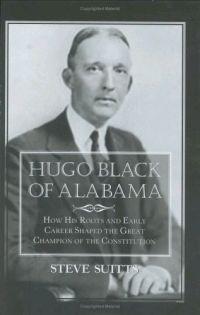

Purchase
Three decades after his death, the life and career of Supreme Court Justice Hugo L. Black remain both an enigma and controversial.
NewSouth Books
May 2005
Featuring: Hugo Black
640 pages
ISBN: 1588381447
Hardcover
Add to Wish List
Non-Fiction
This latest, definitive study of Black’s origins and early
influences has been twenty-five years in the making and
offers fresh, dramatic insights into the Justice’s
character, philosophy, and ethics. Hugo Black came out of
hardscrabble Alabama hill country, and he never forgot his
origins. He was shaped by the early 20th-century politics
of Alabama and Birmingham, where he set up a law practice
and began his political career, eventually rising to the
U.S. Senate. After President Franklin D. Roosevelt selected
him for America's highest court in 1937, Black’s
appointment was widely condemned once it was reported
nationally that he had been a member of the Ku Klux Klan.
One of the book’s conclusions that is sure to be
controversial is that, in the context of Alabama and
Birmingham in the early 1920s, Black’s joining of the KKK
was politically progressive and personally ethical. This
startling assertion is supported by an examination of
Black’s choices amid the conflicts raging in Birmingham at
that time between industrialists and labor unions. Black,
of course, went on to become one of America’s staunchest
judicial champions of free speech, civil liberties, and
civil rights and, as a result, he was one of the figures
most vilified in the South by the KKK and other white
supremacists in the 1950s and early ’60s.
Comments
No comments posted.
Registered users may leave comments.
Log in or register now!
| 


 © 2003-2024 off-the-edge.net
all rights reserved Privacy Policy
© 2003-2024 off-the-edge.net
all rights reserved Privacy Policy